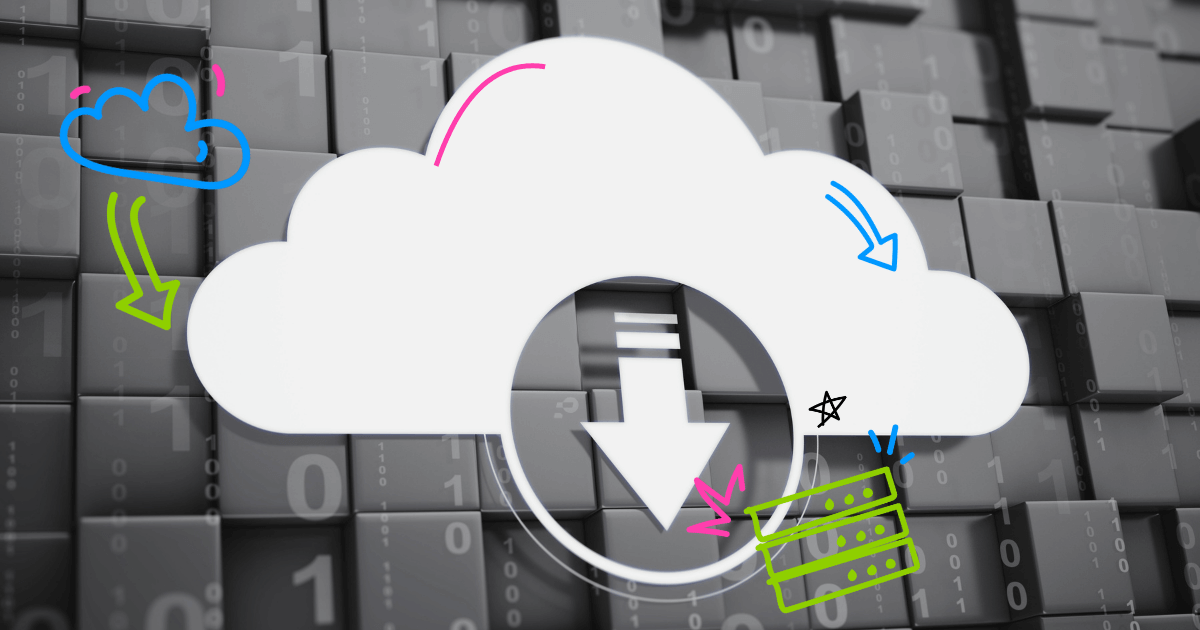
Cloud storage has become a vital part of media companies’ data management strategies due to its scalability and flexibility. However, rising costs, security concerns, and performance issues are driving a trend toward cloud repatriation. In fact, 42% of companies have moved some or all of their data back on-premise (Techopedia).
For media companies handling large volumes of actively accessed content, this shift is pressing. Costs are stretched, and post-production budgets are down. So, how can we drastically reduce cloud costs whilst still allowing fast access, AI workflows, and asset monetization?
Let’s look at how this can be achieved.
1. Cost Efficiency: Cutting Cloud Storage Costs
Cloud storage fees can skyrocket for media companies handling massive video files, high-resolution content, and other rich media assets. While the cloud is often sold as an affordable, scalable solution, costs can grow as data volumes increase and more frequent access to that data is needed. The same survey found that 82% of companies moving away from the cloud cited rising costs as a major reason for repatriation. Transferring petabytes of content regularly can also rack up significant transfer fees.
Perifery's on-prem storage provides the benefits of cloud flexibility and ease of data management with an entirely predictable pricing structure, whilst hybrid workflows can work together with assets that are best transferred through cloud platforms.
2. Enhanced Security for High-Value Assets
The media industry is driven by intellectual property (IP), and data breaches can have catastrophic consequences. Leaked footage or unauthorized access to high-value content like unreleased movies or exclusive interviews can result in financial losses and reputational damage. Public cloud environments, though secure, remain more vulnerable due to shared infrastructure and complex dev ops.
By repatriating to Perifery’s storage solutions, media companies can design tailored security protocols and keep their sensitive content air gaped from the broader cloud ecosystem. Companies have full control over encryption, user access, and other security measures, which is essential for safeguarding critical IP and reducing the risk of cyberattacks or insider threats.
3. Compliance with Regional and Industry-Specific Regulations
Media companies working internationally often struggle with data sovereignty and compliance. For example, a film studio operating in Europe must comply with strict data protection regulations such as the GDPR. Cloud providers, which store data in different regions, can make it difficult for companies to control exactly where their content resides.
Cloud repatriation allows companies to keep their data within specific geographical boundaries, meeting local regulatory requirements. With Perifery, media companies can configure on-premise or hybrid solutions to ensure that content remains compliant, no matter where it is produced or distributed.
4. Performance and Latency: Improving Workflow Efficiency
Latency can be a significant problem in media workflows that require fast access to large video files, such as editing, visual effects, or live broadcasts. Cloud-based workflows often suffer from delays, as data is stored in distant data centers. This is particularly problematic for industries that depend on real-time access and collaboration.
With Perifery’s edge cloud and hybrid solutions, media companies can store their data closer to where it’s being used, dramatically reducing latency and skyrocketing egress fees. Local storage ensures immediate access to files, speeding up editing, rendering, and distribution processes. For example, in live sports broadcasting, lower latency can mean the difference between capturing a critical moment in real time or missing it due to delays.
5. AI is Rocking the Boat; and Cloud is Costly
Media companies often need to store archived content for re-usage and monetization. AI is undoubtably enabling ways to achieve this that simply didn’t exist even a few years ago. Whilst cloud was initially the place to do AI, sky rocketing fees for compute, egress and dev ops are meaning that companies are failing to take advantage of this fast-moving arena. Many media assets create costs well over $1 to analyze with an AI algorithm in the cloud. We know, because we do it. That’s fine on a few assets, but multiply that over millions of assets, multiple AI algorithms and updated AI algorithms and it quickly becomes untenable.
Perifery’s on-prem AI+ solution, combined with your on-prem storage, offers predictable costs and fast analysis, making AI essential for staying competitive.
As cloud costs rise and security risks grow, the initial appeal of cloud storage is fading. With 67% of companies finding cloud storage costs for cold data unsustainable, many are shifting back on-prem. Media companies need better control, performance, and cost-efficiency—and AI amplifies this urgency.
Perifery’s media-focused on-premise storage and AI solutions offer a compelling alternative, helping companies repatriate data, streamline workflows, and protect valuable assets, all while reducing costs and enhancing control over valuable content.
